MercoPress. South Atlantic News Agency
Tag: Fed
-
Monday, March 16th 2020 - 11:19 UTC
G7 global rescue: Fed cuts rates to almost zero and launches US$ 700bn stimulus program
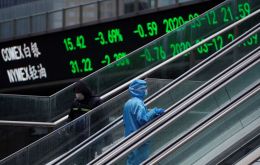
The US has cut interest rates to almost zero and launched a US$ 700bn stimulus program in a bid to protect the economy from the effect of coronavirus. It is part of a coordinated action announced on Sunday in the UK, Japan, the Eurozone, Canada, and Switzerland.
-
Friday, January 10th 2020 - 09:50 UTC
Fed members confident about the US economy in 2020: headwinds abating

The global trade wars may not be over, but U.S. Federal Reserve officials on Thursday said the economy may have weathered the worst of it as risks begin to ease and businesses adjust to a new trade environment.
-
Thursday, November 14th 2019 - 09:50 UTC
Fed chief Powell urged Congress to take action on rising US debt and deficit

Federal Reserve chief Jerome Powell urged Congress on Wednesday to take action on the rising US debt and deficit to ensure the continued growth of the American economy. Called before the Joint Economic Committee to discuss the economic outlook, the central bank chief stressed that it was not his role to give policy advice, before he gave diplomatically-worded policy advice.
-
Thursday, October 31st 2019 - 09:01 UTC
Fed lowers benchmark by a quarter point: third cut in four months
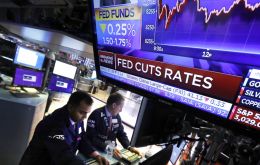
The US central bank has cut interest rates again, hoping to shield the economy from the impact of trade wars and a global slowdown. The Federal Reserve lowered the target for its benchmark rate by a quarter-point, to a range of 1.5% to 1.75%. The move was the third cut in four months.
-
Saturday, October 12th 2019 - 09:10 UTC
Fed announces supply of reserves plan to avoid “cash crunches”
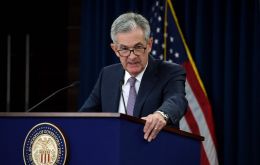
The Federal Reserve has announced a new program to boost liquidity in the US financial plumbing and allow the central bank to better manage interest rates, but without changing monetary policy.
-
Saturday, October 5th 2019 - 09:37 UTC
US unemployment at a record 50-year low in September, but manufacturing fell sharply

The U.S. unemployment rate dropped to near a 50-year low of 3.5per cent in September, with job growth increasing moderately, suggesting the slowing economy could avoid a recession for now despite trade tensions that are hammering manufacturing.
-
Friday, September 6th 2019 - 09:50 UTC
Fed estimates US/China trade war could cost US$ 850bn in lost global trade
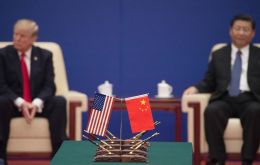
Trade policy uncertainty driven by the Trump administration's escalating dispute with China means hundreds of billions of dollars in lost U.S. output and as much as US$850 billion lost globally through early next year, research published this week by the Federal Reserve suggests.
-
Thursday, June 20th 2019 - 09:00 UTC
Divided Fed says no rates changes until 2020; criticism from Trump expected

A divided Federal Reserve held the line on interest rates Wednesday and indicated formally that no cuts are coming in 2019. The decision came amid divisions over what is ahead and still leaves open the possibility that policy loosening could happen before the end of the year depending on how conditions unfold.
-
Thursday, June 20th 2019 - 08:50 UTC
Brazil central bank leaves benchmark rate at 6.50%; forecasts of 5.50% by December
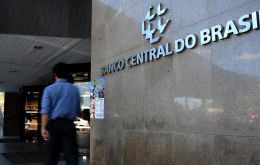
Brazil’s central bank held its benchmark interest rate at a record-low 6.50% on Wednesday, as expected, holding back from signalling looser policy because of doubts on economic reforms. The scenario outlined by policymakers was one of anaemic economic growth and high levels of economic slack putting downward pressure on inflation at home, plus the prospect of interest rates coming down in major developed economies.
-
Wednesday, June 5th 2019 - 09:41 UTC
Federal Reserve prepared to cut rates if trade conflicts threaten US economy

Chairman Jerome Powell said on Tuesday that the Federal Reserve is prepared to respond if it decides the Trump administration's trade conflicts are threatening the U.S. economy. Investors read his remarks as a signal that the Fed will likely cut interest rates later this year.
